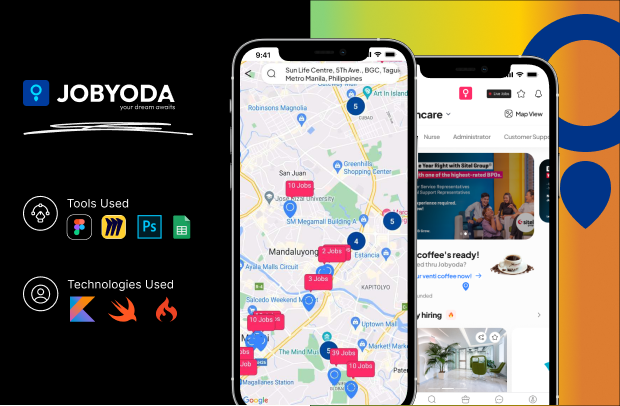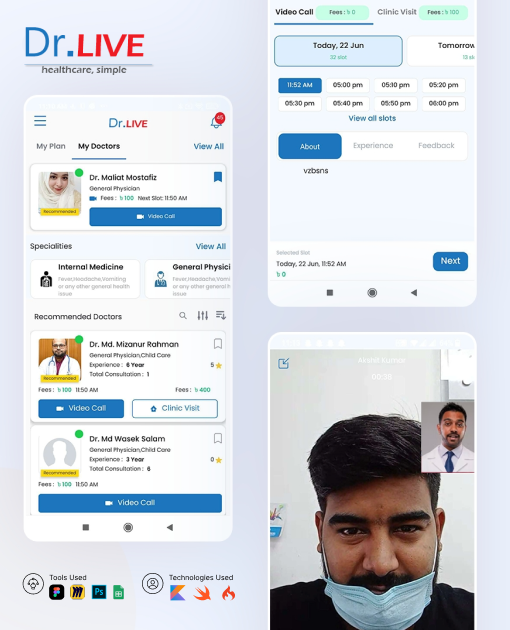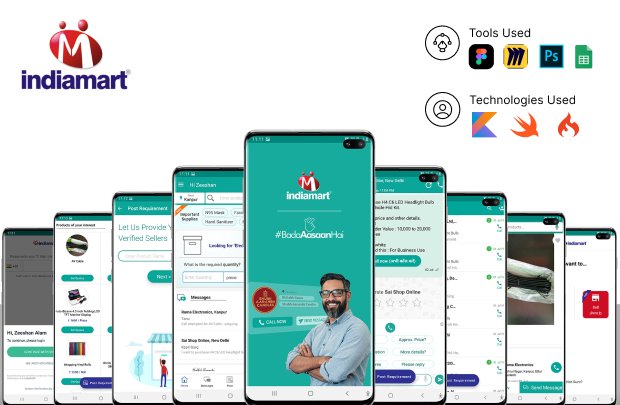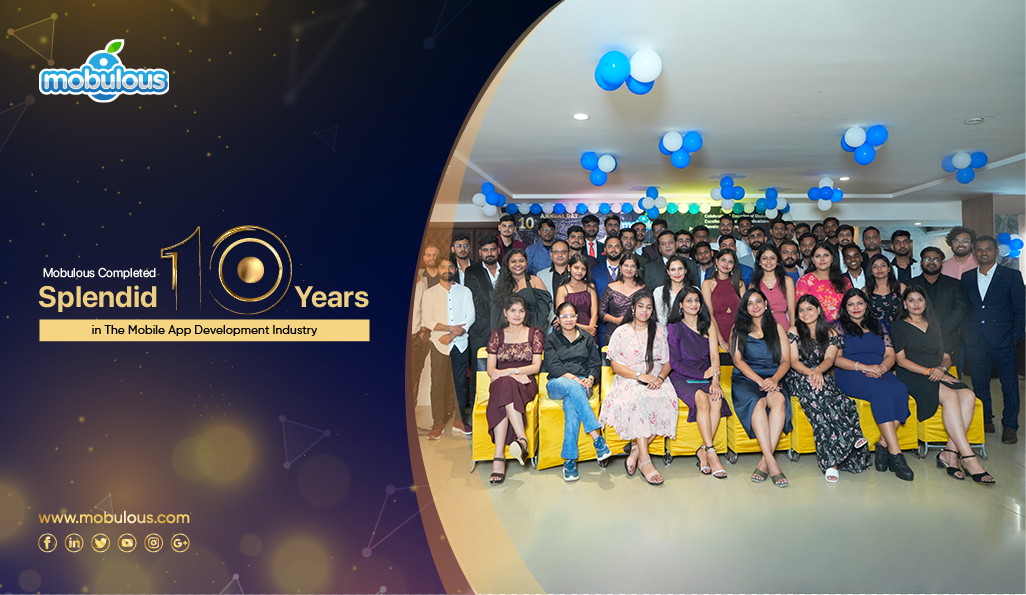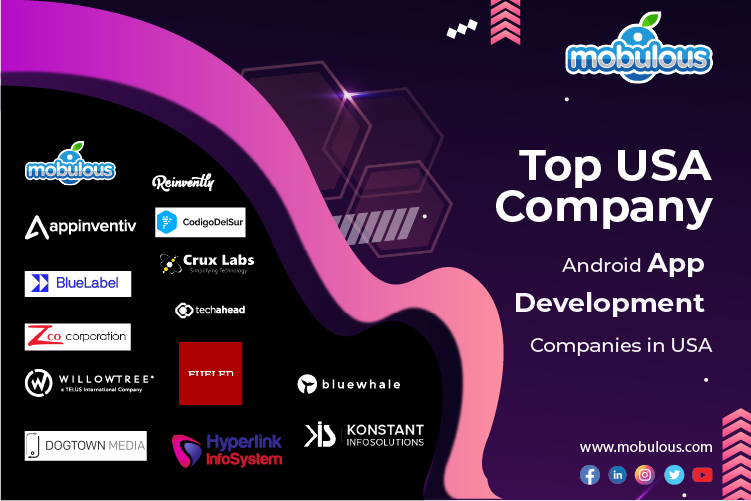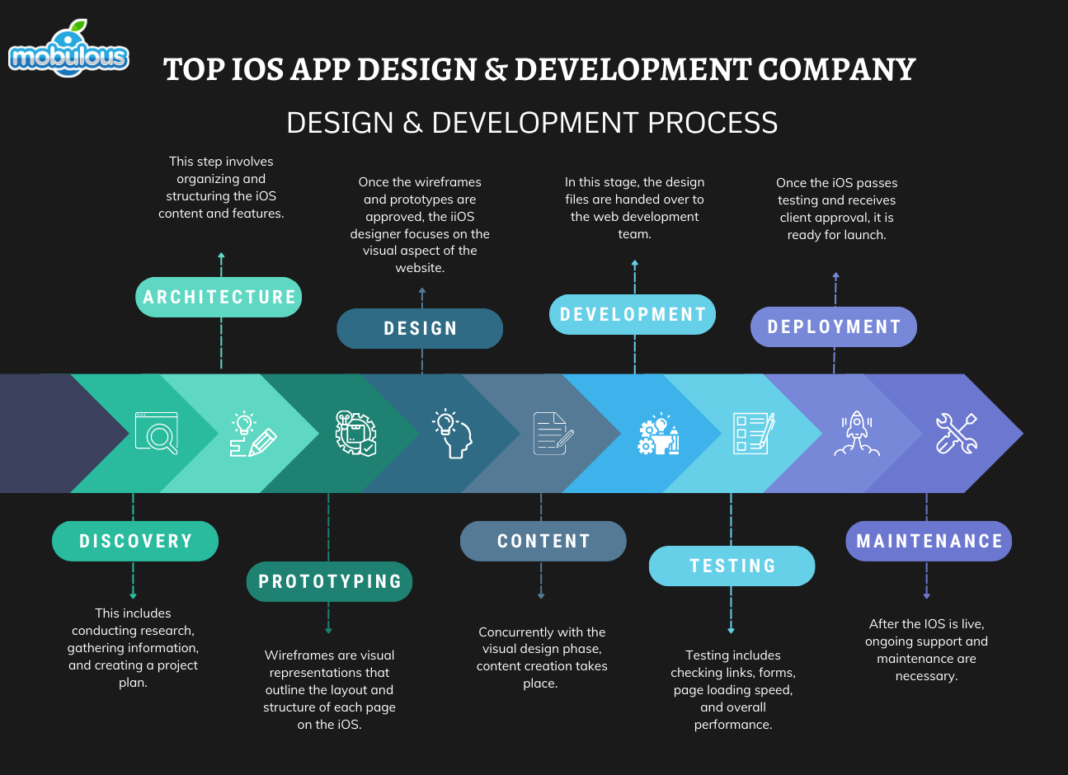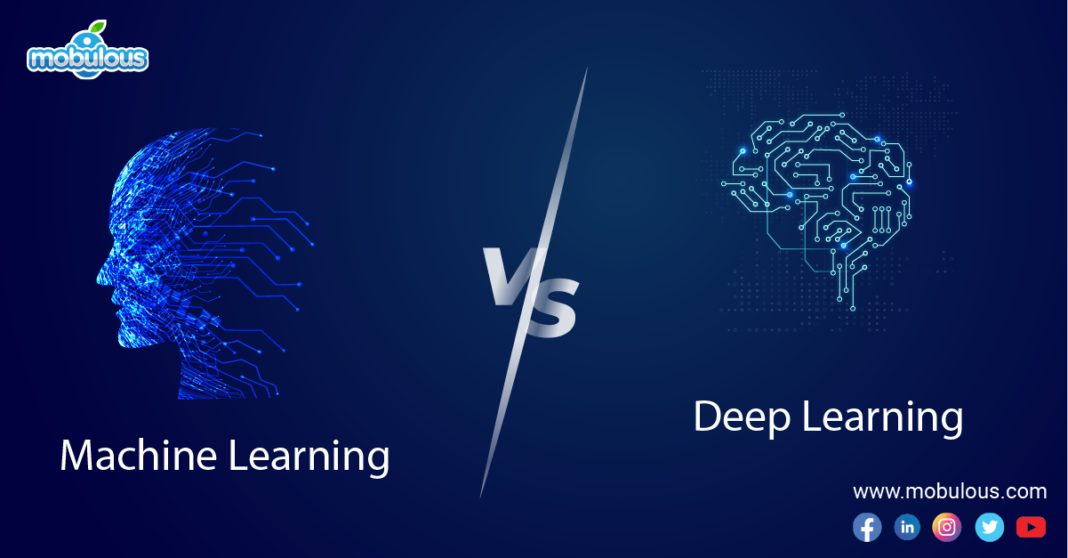What is DevOps?
DevOps is a set of practices bridging the development (Dev) and IT operations (Ops) to enable the time-to-deliver to shorten the systems development lifecycle when delivering functionalities, features, fixes, and updates rapidly in close alignment with business goals and objectives.
It aims to create a culture and environment in which building, testing, and releasing software happens rapidly, frequently, and reliably. DevOps focuses on the cooperation and communication of software developers and other IT professionals in the automation of the software delivery process as well as infrastructure changes.
DevOps builds an environment and culture in designing, developing, testing, and deploying software quickly and reliably.
Why DevOps is Important For Modern Software Development?
With its ability to simplify processes, enhance collaboration, and elevate delivery, DevOps has become essential to today's software development. The following are the reasons for using DevOps in software development in modern times.
1. Faster Time to Market
The frequent and quick releases of software enabled by the practices of DevOps allow businesses to respond speedily to market demands and thereby increase their chances in the rapidly advancing digital world that is witnessed today.
2. Enhanced Collaboration
It breaks down the silos that exist between DevOps development and operations teams and thus provides better collaboration and communication, which leads to effective problem-solving and distributed responsibility toward the quality of the product.
3. Improved Quality and Reliability
Automated testing and continuous integration in DevOps practice ensure that code is thoroughly tested before deployment and launch, reducing bugs/issues and enhancing overall software quality and reliability.
4. Increased Efficiency
Automation of repetitive tasks in the development and deployment process saves time and reduces human error which leads to more effective usage of resources and quick delivery cycles.
5. Better Customer Satisfaction
Faster release cycles and enhanced product quality result in quicker bug fixes and feature updates. This results in higher client satisfaction and loyalty rates in the long run.
6. Continuous Learning and Improvement
DevOps culture promotes consistent and regular feedback and learning, thus encouraging a mindset of continuous improvement that allows businesses and organizations to adapt and evolve their processes and products over time.
Key Principles and Practices of DevOps
DevOps is built on multiple core principles and practices that guide developers and clients in its implementation and success. The most crucial five key principles and practices of DevOps are mentioned below comprehensively:
1. Continuous Integration and Continuous Delivery (CI/CD)
CI/CD pipelines automate the process of integrating code changes and also deploying it in production as well as running the necessary tests; therefore, there are reliable and consistent software releases and it allows for faster time to market for the latest features and functionalities.
2. Infrastructure as a Code (IaaC)
IaaC or Infrastructure as a code treats the infrastructure configuration as software codes that allow version control, consistent environment setups, and automated deployment to reduce errors of human intervention, and increase reproducibility, and scalability of infra.
3. Automation
Automation lies at the heart of DevOps which involves testing, deployment, and infrastructure management, hence reducing errors caused by manual intervention, enabling teams to focus on other higher-value tasks, and accelerating speed.
4. Monitoring and Feedback
Continuous application and infrastructure monitoring allow for real-time performance and user experience insights. This specific feedback loop recognizes and resolves bugs and issues immediately.
5. Collaboration and Communication
DevOps as an engineering practice promotes the de-coupling of application development from operations and other stakeholders' silos. It therefore encourages a culture of collaborative understanding through shared responsibility and frequent communication.
How Can Continuous Integration and Continuous Delivery (CI/CD) Pipelines be Implemented in a DevOps Environment?
Implementing CI/CD pipelines in a DevOps environment simply involves setting up automated workflows that incorporate code changes, run tests, and deploy to production which generally includes the below points:
- Using version control systems, including Git for code management.
- Implementing automated build and test methodologies triggered by code commits.
- Deploying automated quality checks and security scans.
- Setting up automates deployment to staging and production environments.
- Implementing monitoring and rollback mechanisms.
- Leveraging tools like GitLab, Jenkins, or GitHub Actions in order to orchestrate these processes.
- Ensuring proper access controls and approvals are in place.
Essential Tools For a Successful DevOps Strategy
There are five crucial tools for a successful DevOps strategy, including a version control system (e.g. Git), CI/CD tools (e.g., Jenkins, GitLab CI), configuration management tools (e.g., Ansible, Puppet), containerization and orchestration (e.g., Docker, Kubernetes), and monitoring and logging tools (e.g., Prometheus, ELK Stack). Let’s understand about them in a bit more detail:
1. Version Control System (e.g. Git)
Git allows collaborative development, code management, and version tracking which is fundamental for maintaining code integrity and fostering team collaboration.
2. CI/CD Tools (e.g., Jenkins, GitLab CI)
CI/CD tools automate the build, test, and deployment processes that enable reliable and frequent software releases which is essential for executing continuous integration and delivery procedures and approaches.
3. Configuration Management Tools (e.g., Ansible, Puppet)
Configuration management tools automate the provisioning and management of infrastructure, ensuring consistency across environments and fostering the implementation of Infrastructure as Code.
4. Containerization and Orchestration (e.g., Docker, Kubernetes)
Containerization tools package applications with their dependencies while orchestration tools handle container deployment and scaling, thus improving scalability and portability.
5. Monitoring and Logging Tools (e.g., Prometheus, ELK Stack)
Monitoring and logging tools provide insights into application and infrastructure performance, inform decision-making, and enable proactive issue resolution.
How Does Infrastructure as a Code (IaaC) Fit into the DevOps Workflow?
Infrastructure as Code, that is IaaC, is an important component of the DevOps pipeline. This enables teams to manage and provision infrastructure through code and automation.
In the context of DevOps, IaaC provides version control of infrastructure configurations, invariability in environment setups among development, testing, and production, and automatic provisioning.
This method aligns infrastructure management with software development practices and facilitates rapid and even more dedicated deployments, which allows human errors.
IaaC tools, such as AWS CloudFormation or Terraform, integrate into CI/CD pipelines and foster the idea of changing infrastructure to be tested and deployed in parallel with the application.
DevOps integration allows infrastructure to change in lockstep with application needs and requirements, supporting the purpose of DevOps: from agility to reliability.
Best Practices For Automating Testing and Deployment in DevOps
Automated testing and deployment can help achieve the speed and reliability targets set by DevOps. The following are the five most crucial best practices on how to implement automation efficiently in your DevOps workflow:
- Implement comprehensive test suites: Develop rich automated tests, such as unit tests, integration tests, and end-to-end tests, covering critical paths and edge cases, to get issues and risks identified early in the DevOps development cycle.
- Leverage Infrastructure as a Code (IaaC): Implement Infrastructure as a Code so that it's possible to have environments in an automated way, creating consistent environments and ensuring infrastructure can be version-controlled, tested, and deployed, along with application code.
- Adopt blue-green deployments: Implement blue-green deployment strategies and methodologies in order to reduce downtime and risk that enable easy and seamless rollbacks and ensure that the latest version is fully operational before switching traffic.
- Implement continuous monitoring: Use monitoring tools integrated into the deployment pipeline, checking for system health and performance post-deployment automatically, in a quick way to detect and resolve production issues.
- Automate security scans: Automated security scans in the CI/CD pipeline, including dependency checks, static code analysis, and susceptibility scans, to ensure that security is actually built into every release.
How to Ensure Security and Compliance Within a DevOps Framework?
In order to ensure security and compliance within a DevOps framework professionally like the advanced DevOps development company, you need to follow the below steps carefully and precisely. These crucial steps are explained below one by one:
1. Shift Left Security
Incorporate security practices early in the DevOps development process. Implement security testing in CI/CD pipelines, provide security training to developers, and conduct regular code reviews in order to catch any susceptibilities early.
2. Automate Compliance Checks
Implement automated compliance checks in your CI/CD pipelines and leverage tools that can verify compliance with relevant standards (e.g., HIPAA and GDPR) and flag any violations before software deployment.
3. Implement Least Privilege Access
Apply the principle of least privilege across your infrastructure, leverage role-based access control (RBAC), and audit access permissions regularly in order to reduce possible security breaches and infringements.
4. Secure Your CI/CD Pipeline
Safeguard your CI/CD pipeline by securing build servers, using signed commits, and implementing strict access controls. Audit and update pipeline configurations regularly in order to prevent and avoid unauthorized and uncertified access.
5. Continuous Security Monitoring
Implement continuous security monitoring tools in order to detect and alert on possible security threats in real time, including intrusion detection systems, anomaly detection, and log analysis.
6. Regular Security Audits
Conduct regular security audits and penetration testing that help in identifying possible susceptibilities in your systems and processes. This enables you to address and direct them proactively.
Role of Monitoring and Logging in a DevOps Setup
Monitoring and logging play a critical role in DevOps by providing visibility into system performance, potential issues, and user behavior. They allow teams to proactively identify and fix issues and bugs, make data-driven decisions, and optimize performance.
Effective monitoring and logging practices foster support capacity planning, and quick troubleshooting, and help maintain system reliability. In addition to this, they also provide useful insight for continuous improvement that enables teams to refine their processes and enrich overall system efficiency and user experience.
How to Measure the Success of DevOps Initiatives?
Measuring the success of DevOps initiatives is extremely important for continuous improvement and determining value. The six key metrics that will help you evaluate the effectiveness of your DevOps practices are as follows:
- Deployment Frequency: Measure how often your latest code is deployed to production. Higher frequency implicates enhanced agility and ability in order to deliver value to clients quickly.
- Lead Time for Changes: Follow the time from code commit to production deployment. Shorter lead times determine increased effectiveness in the DevOps development and deployment procedures.
- Mean Time to Recovery (MTTR): Measure the average time in order to recover from failures. Lower MTTR implicates enhanced resilience and the ability to quickly resolve or fix issues and bugs.
- Change Failure Rates: Follow the percentage of changes and alterations that result in failures and mandate remediation. Additionally, a lower rate implicated enriched quality and stability of releases.
- Client Satisfaction: Monitor client feedback and satisfaction scores. Enhanced DevOps practices should lead to better product quality and user experience that is reflected in higher satisfaction.
- Team Velocity and Productivity: Measure team output and efficiency. Enhanced DevOps practices should lead to elevated productivity that is reflected in higher velocity and more consistent output.
Common Challenges and Overcomes When Adopting DevOps
Adopting DevOps brings multiple benefits but also presents challenges, including tool integration, cultural resistance, and skill gaps. Overcoming these obstacles is essential for successful DevOps implementation and transformation.
1. Cultural Resistance
- Challenge: Resistance to change and alteration from conventional DevOps development and operations teams.
- Overcome: Facilitate a culture of collaboration through cross-platform teams, education, and leadership support for DevOps principles.
2. Lack of Skilled Personnel
- Challenge: Shortage of professionals with DevOps expertise/
- Overcome: Invest in training existing staff, hire strategically and with proper planning, and consider partnering with DevOps consultants to bridge the skills gap,
3. Tool Sprawl
- Challenge: A massive and inordinate number of DevOps tools results in integration issues.
- Overcome: Carefully evaluate and choose a core collection of tools that incorporate well. Make sure to prioritize tools that offer broader functionality and good interoperability.
4. Security Concerns
- Challenge: Balancing speed of delivery with security requirements.
- Overcome: Implement DevSecOps practices, integrating security all through the development lifecycle. Leverage automated security testing and continuous monitoring.
5. Legacy Systems
- Challenge: Incorporating legacy systems into modern DevOps practices.
- Overcome: Moderately modernize legacy systems, leverage APIs for integration, and consider containerization in order to enhance the portability of legacy applications.
6. Measuring Success
- Challenge: Hardship and difficulty in quantifying DevOps advantages.
- Overcome: Establish clear and measurable KPIs aligned wth business goals. In addition to this, make sure to track and communicate progress to stakeholders regularly.
7. Scaling DevOps
- Challenge: Difficulty in scaling DevOps practices across big businesses.
- Overcome: Make sure to begin with pilot projects, gradually expand, and document successes. Leverage center of excellence models in order to spread DevOps best practices.
How Can Containerization and Orchestration (e.g., Docker and Kubernetes) Be Leveraged in DevOps?
Containerization and Orchestration are essential in DevOps for improving application scalability, portability, and consistency across environments.
Docker enables packaging applications with their dependencies that ensure continuous behavior across various environments. Kubernetes provides managing container deployment, orchestration, networking, and scaling. Together, they allow:
- Consistent and invariant DevOps development and production environments.
- Rapid, steadfast, and reliable DevOps application deployment.
- Effective resource utilization through container orchestration.
- Easy and seamless scaling of applications.
- Enhanced isolation and security.
- Simplified microservices architecture implementation.
These technologies sustain DevOps objectives of more rapid delivery, enhanced reliability, and improved collaboration between DevOps development and operations teams.
Steps to Scale DevOps Practices Across a Big Business
A strategic approach is mandatory in order to scale DevOps practices and methodologies in order to overcome technical, cultural, and organizational challenges. Here are five key steps in order to scale DevOps successfully in a big business:
1. Start With a Pilot Project
Make sure to start by implementing DevOps practices in a small and cross-functional team working on a manageable project that enables you to determine the benefits of DevOps, identify possible challenges, and build the best practices customized to your business. Use the success of this pilot in order to create momentum and achieve buy-in from stakeholders.
2. Develop a Center of Excellence
Establish a DevOps Center of Excellence (CoE) in order to centralize tools, expertise, and best practices. This team should steer the businesses’ DevOps strategy, ensure consistency across different teams, and provide training and support. The CoE can also help standardize tools and processes in order to streamline scaling.
3. Invest in Training and Culture Change
Provide comprehensive training programs in order to upskill existing staff and facilitate a DevOps mindset and concentrate on both soft skills and technical skills, including communication and collaboration. Promote a culture of continuous learning, shared responsibility, and experimentation in order to break down traditional silos.
4. Standardize and Automate
Enforce standardized processes and toolchains across the business and startups in order to ensure consistency and efficiency. Invest in automation for testing, deployment, and infrastructure management, thus reducing manual errors, speeding up processes, and allowing teams to concentrate on high-value activities as they scale.
5. Measure and Iterate
Establish clear and transparent metrics in order to measure the success of your DevOps initiatives. Review these metrics, seek feedback from teams, and consistently enhance your processes regularly. Make sure to be prepared to adjust to your approach depending on lessons learned and the emerging business necessities as you scale DevOps practices and methodologies.
Key Metrics and KPIs to Track in a DevOps Environment
Tracking the right metrics is essential for assessing the effectiveness of DevOps practices and identifying areas of improvement. The most crucial five key metrics that you must consider monitoring in a DevOps environment are as follows:
- Deployment Frequency: Measures how often the latest code is deployed to production. Higher frequency implicates enhanced agility and quick value delivery.
- Lead Time for Changes: Tracks time from code commit to production deployment. Shorter lead times determine increased efficiency in DevOps development and deployment.
- Mean Time to Recovery (MTTR): Measures average time to recover from failures. Lower MTTR implicates enhanced resilience and faster issue resolution.
- Change Failure Rate: Tracks the percentage of changes and alterations causing failures or requiring fixes and resolves. A lower rate implicates enhanced quality and stability of releases.
How Does DevOps Enable Faster Feedback Loops and Improve Product Quality?
DevOps allows quick feedback loops by incorporating software development, testing, and operations processes. Continuous integration and delivery (CI/CD) approaches permit periodic and frequent code deployments, enabling rapid user feedback.
Automated testing catches issues early, while monitoring tools provide real-time performance insights. This quick feedback allows teams to identify and fix problems promptly, leading to faster iterations and improvements.
The result is higher product quality, as issues are addressed quickly and features are refined based on actual user experiences and data.
Benefits of Adopting a DevOps Approach For Cloud-Based Applications
Adopting a DevOps approach for cloud-based applications can significantly enhance development efficiency, scalability, and overall performance. Here are five key benefits of implementing DevOps in cloud environments:
1. Improved Scalability and Flexibility
DevOps practices, combined with cloud infrastructure, enable rapid scaling of applications to meet demand. This flexibility allows for efficient resource utilization and cost management in response to changing workloads.
2. Faster Time-to-Market
Cloud-based DevOps pipelines streamline more rapid software development and deployment cycles. Automated processes and on-demand resources accelerate testing and deployment, enabling quicker delivery of the latest segments and updates to users.
3. Enhanced Collaboration and Productivity
Cloud-based DevOps tools promote better collaboration between DevOps development and operations teams. Shared platforms and resources streamline communication and workflow, leading to increased productivity and more efficient problem-solving.
4. Improved Reliability and Disaster Recovery
Cloud DevOps practices facilitate the seamless implementation of robust and vigorous disaster recovery and high-availability solutions. Automated backups, multi-region deployments, and infrastructure-as–a-code (IaaC) enrich system reliability and resilience.
5. Cost Optimization
DevOps in the cloud enables more useful resource management and cost control. Pay-as-you-go models, coupled with automation and efficient scaling, help optimize cloud spending and improve the overall cost-effectiveness of application development and operations.
How Can DevOps Help Reducing Costs and Increasing Efficiency in Software Development?
DevOps development helps reduce costs and boost efficiency in software development through multiple means and mechanisms such as:
- Automation of repetitive tasks facilitates manual errors and frees up DevOps developers’ time for high-value activities.
- Continuous integration and delivery (CI/CD) practices catch and fix issues earlier, reducing costly late-stage bugs.
- Enhanced collaboration between DevOps development and operations teams diminishes miscommunication and rework.
- Infrastructure as a Code (IaaC) and cloud technologies encourage more effective resource utilization and scaling.
- More rapid release cycles permit quicker market feedback and more efficient feature development.
- Standardized environments and processes facilitate inconsistencies and troubleshooting time.
Is Outsourcing a DevOps Development Company Good?
Outsourcing to a DevOps development company is a good choice for multiple businesses and startups, specifically for those lacking in-house expertise or resources. It permits access to specialized skills, best practices, and the most delinquent tools without any requirement for comprehensive recruitment or training.
Outsourcing can accelerate DevOps adoption, provide scalability, and enhance efficiency. Nevertheless, it is important to select the right DevOps development company and maintain clear and transparent communication.
Possible drawbacks include dependency on external parties and possible cultural misalignment. The decision should depend on your business’s unique requirements and needs, existing capabilities, and long-term goals. When done right, outsourcing DevOps can result in faster innovation, enhanced quality, and cost savings.
Benefits of Partnering With the DevOps Development Company
Partnering with a DevOps development company can bring significant benefits to your business’s software development and operations processes. Here are six fundamental benefits of such a partnership.
1. Access to Specialized Expertise
A DevOps development company offers a team of experts with diverse skills and experience in various DevOps tools and practices. This expertise can help you implement best practices, overcome challenges, and optimize your software development pipeline more effectively when compared with creating an in-house team from scratch.
2. Faster Implementation and Time-to-Market
An experienced DevOps development company can rapidly set up and optimize your software development and deployment processes. Their established methodologies and tools can significantly reduce the time mandated in order to implement DevOps practices that allow you to realize advantages and accelerate your time-to-market for the latest features and products.
3. Cost-Effectiveness
Outsourcing DevOps can be more cost-effective when compared with creating and handling an in-house team. It eradicates the requirement for extensive recruitment, training, and ongoing investment in tools and infrastructure. You can leverage the DevOps development company’s resources and expertise on a flexible basis, scaling up or down as mandated.
4. Focus on Core Business
By delegating DevOps responsibilities to a specialized DevOps development company, your internal teams can concentrate more on central business activities and innovation. This allows for better resource allocation and enables your firm to focus on strategic initiatives that propel business growth and competitive advantage.
5. Continuous Improvement and Innovation
An advanced DevOps development company stay updated with the latest industry trends, tools, and best practices. They can bring this knowledge to your firm, ensuring that your DevOps processes remain cutting-edge. This continuous improvement can lead to ongoing enhancements in efficiency, quality, and innovation.
6. Scalability and Flexibility
A DevOps development company can provide the scalability and flexibility mandated in order to manage inconsistent workloads and project requirements. They can quickly allocate additional resources during peak periods or for complex projects, ensuring your development and operations processes remain efficient regardless of demand fluctuations.
Steps to Partner With the Right DevOps Development Company
Selecting the right DevOps development company is paramount for a successful partnership. Here are seven steps to assist you in choosing and partnering with the most suitable DevOps development company for your necessities:
1. Define Your Objectives and Requirements
Clearly outline your business’s goals for implementing DevOps. Identify specific pain points in your current processes and the outcomes you expect from the partnership.
This could include faster deployment cycles, improved code quality, or enhanced collaboration. Having well-defined objectives will guide your selection process and help a potential DevOps development company understand your needs.
2. Research Potential Partners
Conduct thorough research to identify a leading DevOps development company. Look for firms with a strong track record in DevOps implementation and relevant industry experience.
Check their client portfolios, case studies, and testimonials. Consider factors like their size, location, and cultural fit with your organization.
3. Evaluate Technical Expertise and Tools
Assess the technical capabilities of a reliable DevOps development company. Look for expertise in relevant technologies, cloud platforms, and DevOps tools that align with your stack or future plans.
Evaluate their experience with continuous integration/continuous deployment (CI/CD) pipelines, infrastructure as code, and containerization. Ensure they can integrate seamlessly with your existing systems.
4. Assess Communication and Collaboration Approach
Effective communication is crucial for a successful DevOps partnership. Evaluate how an expert DevOps development company handle client communication, their availability, and responsiveness.
Consider their collaboration tools and methodologies. Ensure they have a clear process for regular updates, issue resolution, and knowledge transfer to your internal team.
5. Review Security and Compliance Measures
Given the sensitive nature of development and operations processes, thoroughly vet top DevOps development company’s security practices.
Ensure they comply with relevant industry standards and regulations. Discuss their approach to data protection, access controls, and secure coding practices. Verify their policies for handling your intellectual property and confidential information.
6. Consider Scalability and Long-Term Support
Assess the DevOps development company’s ability to scale its services as your needs grow. Discuss their capacity to handle increased workloads or expand services in the future.
Evaluate their approach to long-term support and maintenance. Consider their strategy for knowledge transfer and empowering your internal team over time.
7. Conduct Pilot Projects and Evaluate Results
Before committing to a long-term partnership, consider running a pilot project with your top candidate(s). This allows you to assess the performance, cultural fit, and ability of the shortlisted DevOps development company in order to deliver on promises in a real-world scenario.
Evaluate the results against your predefined objectives and gather feedback from your internal team before making a final decision.
 Contact us
Contact us




















